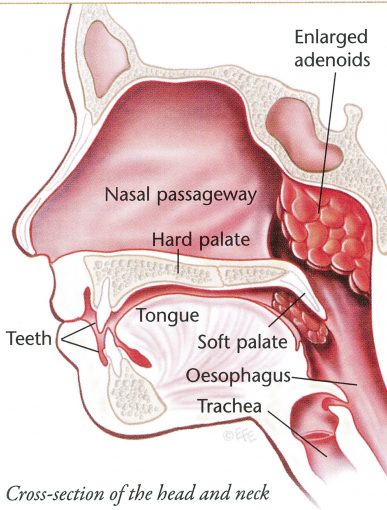Fast Facts
Don’t take medications or supplements that cause bleeding for 1 week before and after surgery
Take 24 hours off driving after surgery and 4 days off usual activities (kinder, day care, school or work, sport).
What is this for? Is it effective?
The adenoid is like a tonsil. It is on the back wall of the throat, behind the nose and above the palate.
It is part of the immune system, helping to recognize and start the immune response to viruses and bacteria that are breathed in the nose. It is important in the first year of life and can then be removed without affecting the immune system.
A large or inflamed adenoid can cause blocked nose, snoring or middle ear problems. Reducing the size of the adenoid can relieve these problems.
For middle ear disease, adenoidectomy is usually combined with insertion of middle ear ventilation tubes.
For snoring, adenoidectomy is usually combined with tonsillectomy. It is effective for snoring when combined with tonsillectomy and where there are no other persistent causes for snoring.
The operation is effective for blocked nose when other causes of blocked nose like rhinitis are also under control.
See also Tonsillectomy (removing the tonsils)
Video explainer

